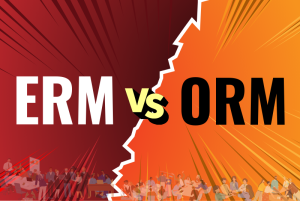All organisations want to be successful, or at least do well enough to satisfy their shareholders, and keep their various stakeholder groups happy. They also want this prosperity to be continuous, and, ideally, to increase over time. But there is one barrier that must be considered, inherent in all business activities, which may prevent them from achieving their objective of competitiveness, sustainability and growth: risk. operational risk management (ORM) is something all organisations have to deal with whether they like it or not. To be in business is to have to deal with operational risk; if not appropriately managed, it can have a devastating effect on the business, and erode the gains made painstakingly over time.
Operational risk can take many forms, from fraud to pilferage, equipment sabotage, supply chain disruption, transactional failures, employee health and safety issues, union matters, cybersecurity – even natural disasters. All these – and more – may result in financial or market share losses for the organisation, and affect its share price or reputation. Firms need to ensure that the right policies, processes and procedures are in place from the start, and that the people who run it are competent and professional. This includes the board and senior management; the blame for failed policies, poor organisational performance and decreasing company value will be laid at their door.
But while the organisation spares no effort to put in place the right ORM frameworks to mitigate the risks that may derail their progress, the fact that the flip side of risk is opportunity may not appear on its radar. In the course of identifying and assessing risks, an open mind (and an eye) should be kept about leveraging on risks, and recognising that some of these may actually offer lucrative possibilities. Discussions about how to mitigate such risks should then also include how to capitalise on the emerging opportunity and “make it work” to the firm’s advantage. An approach like this underscores the importance of due diligence and deriving reliable information to support decision-making.
ORM also involves constant monitoring so that board and management are able to stay on top of things. They need to be aware of trends and changes in the environment, and be able to project how this is likely to affect the organisation’s short- and long-term performance, and profitability. While ORM may appear onerous, particularly when it comes to monitoring and eliciting feedback for improvement, there are indications that placing staff in a watchful position (or surveillance mode) has an immediate upside: they have a tendency to become more risk-intelligent – mainly because they are already anticipating the difficulties which lie ahead. Forewarned is forearmed.
Considering that with ORM, every aspect of the organisation needs to be scrutinised for suitability, applying ORM principles, therefore, places the organisation in a situation of preparedness. It is this preparedness that develops its resilience to withstand adversity, and in so doing, maintain a position that continues to support its prosperity.





























